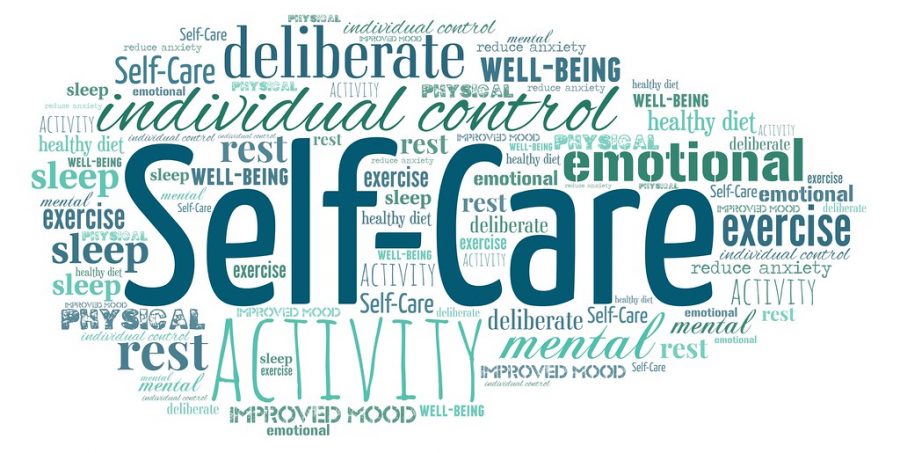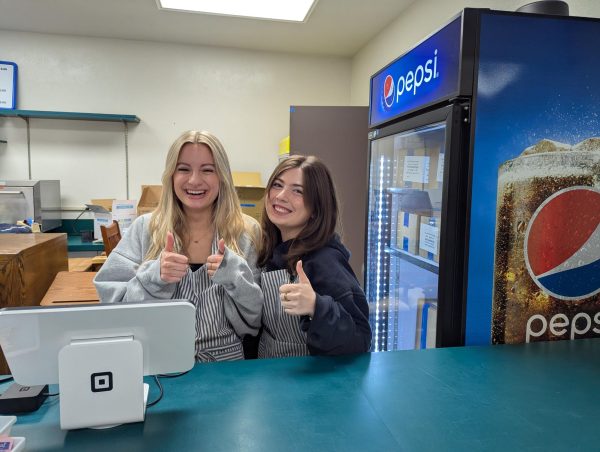How quarantine impacts mental health
People need people. This is a phrase that has been carried through centuries and surely still rings true today.
It has been proven that people who experience loneliness and disconnection are more likely to develop signs of anxiety and/or depression. In a New York Times article highlighting the importance of human connection, personal health columnist Jane E Brody wrote “People who are chronically lacking in social contact are more likely to experience elevated levels of stress and inflammation” (www.nytimes.com).
The isolation imposed due to quarantine has left people feeling that they have no control over the situation; they feel cut off from the world. Though many are surrounded by family members during this time, the sense of isolation and cabin fever can be powerful. That being said, humans’ mental health, especially teenagers, cannot be impacted well due to quarantine and isolation.
In what can be thought of “normal times,” statistics show that 20 percent of teens experience signs of depression and 25 percent experience signs of anxiety before they reach adulthood. With numbers that have increased rapidly, research everywhere says there is no single cause for what teens are experiencing. Although some indicators include bullying, high expectations, substance abuse, or lack of confidence. Teenagers already have so much stress that fills their lives with sports, grades, and expectations, and generally social interaction is a good release.
Due to quarantine, these social interactions have been cut down to the bare minimum with limited outlets and opportunities to find a safe haven.
“I still talk to my friends over FaceTime and Snapchat and other things like that,” an anonymous student said. “But it’s not the same as communicating with someone in person. Honestly, I feel like I need genuine human interaction or it really just doesn’t count. Over the phone is just so impersonal.”
While talking over the phone is fulfilling for some students, for others it simply is not enough. Without true human contact, many students have had trouble maintaining good mental health while keeping social distances.
“For a while school was a place that I dreaded going because I felt so lonely,” an anonymous student confessed. “However as time went on it became the only place where I really wanted to be. Having to stay cooped up in my house has been bringing back that lonely feeling that I used to feel at school.”
School has been a place, for some students, that brings a great deal of stress into their lives. However, without the added social interactions that come with being a student, many yearn to go back.
There is not a singular solution that can benefit every teen who has experienced depression and anxiety, however, there are many things that can be done to help during these unprecedented times.
First, it is important to establish a routine. Having a structured plan can minimize the feeling of being out of control or the feeling of directionlessness. Planning out activities to keep busy will put the mind at ease; it is important to stay active. Feelings of hopelessness and helplessness can be triggers for depression.
“Maintain a regular schedule, including wake and sleep times,” Jesuit counselor Michelle Strear said. “Schedule in time to socialize, to be active/exercise, and other things you enjoy.”
Second, it is important to communicate with others. Though it may not be the same communicating over a screen versus in person, it is important that you try and maintain those relationships for two main reasons. First of all it gives you some form of human contact that you need, because after all people really do need people. And second, quarantine will not last forever and you will need those friendships once social distancing is lifted.
It is also important that you communicate how you are feeling and resist keeping your feelings bottled up. Talk to your friends, parents, siblings, school counselors, or one of the many teen hotlines for those feeling depressed or anxious.
Finally, remember the reason that we are complying with quarantine. It is not a punishment, but a precaution to avoid spreading a virus that has caused thousands of deaths. Keep yourself informed but not overwhelmed. Many people can feel stressed if they feel they do not have access to information about their surroundings. Make sure you know enough to be satisfied but not stressed.
Remember that by complying to quarantine you are saving lives and it will be over soon. Stay true to yourself and never lose sight of your future ahead.
“It was really hard at first, being by myself everyday,”an anonymous student said. “But it’s gotten a lot easier now that I have become more optimistic. I know that this will clear up someday so I might as well try some new things and enjoy some ‘me time’ until that day comes!”
Trevor Hotline for LGBTQ Youth: 1-866-488-7386 | thetrevorproject.org
Suicide Prevention (United States): 1-800-273-TALK (8255) | suicidepreventionlifeline.org
Youth Hotline: 1-877-968-8491 | oregonyouthline.org or text “teen2teen” to 839863

Executive Editor-at-Large and Social Media Executive, Gwynne Olson uses writing and social media to inform, educate, and entertain. Beginning by writing mainly sports pieces, Gwynne dives into opinion pieces and news pieces as well as the occasional video, humour article, and podcast. Gwynne hopes to continue to pursue journalism after graduating from Jesuit, wherever she may land. Though a journalist at heart, she also writes fictional pieces and poetry on the side.








